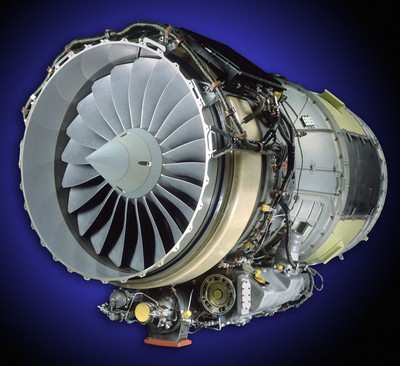Strong Legacy In Engine Technology Continues To Evolve
Honeywell is celebrating a major milestone across its fleet of aircraft engines with more than 225 million flight hours accumulated over the HTF7000 turbofan, the TFE731 turbofan and the TPE331 turboprop product lines. For more than 50 years, Honeywell has been developing reliable, efficient and cost-effective propulsion engines that continue to advance aviation.

"Honeywell's propulsion engine design and development have led the way in performance, reliability and efficiency, and we continue to develop new technologies and design philosophies to meet the ever-changing needs of our customers," said Brian Sill, president, Engines and Power Systems, Honeywell Aerospace. "From military operators and search and rescue teams, to business jet customers including Gulfstream, Embraer, Bombardier, Dassault and Cessna, they can all depend on Honeywell engine performance."
Honeywell's history with gas turbine engines began in 1945 when the legacy company Garrett Corporation developed its first auxiliary power unit. Since then, Honeywell has developed and manufactured a line of propulsion engines that serves customers across an array of platforms — from business jets to military aircraft. Honeywell's experience in both civil and military applications makes the company uniquely capable to design, develop and manufacture the best-performing, most reliable and cost-effective engines available on the market. The company's latest engine model, the HTF7700L, has now been certified by the Federal Aviation Administration (FAA) for the Cessna Citation Longitude, the upcoming super mid-size aircraft from Textron Aviation.
Honeywell recently achieved several major milestones, including:
- HTF7000 Turbofan: Honeywell's HTF7000 family has achieved more than 3.5 million flight hours with best-in-class dispatch reliability and demonstrated low cost of ownership. The 2,000th HTF7000 engine is expected to be delivered in 2018, only 14 years after first entry into service. The HTF7700L achieved its engine certification from the FAA for the Cessna Longitude aircraft nearly one month ahead schedule. This is the sixth application of the successful, class-leading HTF7000 family of engines.
- TFE731 Turbofan: This turbofan engine has achieved more than 100 million flight hours powering over 30 different aircraft applications. Honeywell is extending maintenance intervals by 20 percent for the TFE731-5BR-1H engine. Instead of 2,100/4,200 hours, maintenance intervals will be extended to 2,500/5,000 hours to maximize on-wing performance, saving operators time and money, and demonstrating Honeywell's commitment to operator experience over the entire product lifecycle.
- TPE331 Turboprop: Honeywell's first turboprop engine now has more than 125 million flight hours with more than 13,000 engines delivered and recently achieved its 100th Texas Turbine Caravan conversion. In 2016, the engine reached 1 million flight hours on the General Atomics MQ-9 Reaper. As well, Aviation International News has continually rated it as the No. 1 turboprop engine in all categories, including the Overall Engine Reliability category.
"As aviation expands globally, Honeywell's engine technology is improving reliability and efficiency, while reducing environmental impact. The company is testing 3-D printing to create higher performance and lighter-weight components, while also improving development cycle time," Sill said.
Honeywell's Maintenance Service Plan (MSP) is available for a number of Honeywell engines, allowing operators to protect the value of their assets over their entire life cycle. MSP customers also enjoy predictable maintenance costs and improved dispatch reliability compared with non-MSP customers.
(Image provided with Honeywell news release)
 Airborne 05.10.24: Icon Auction, Drunk MedEvac Pilot, Bell ALFA
Airborne 05.10.24: Icon Auction, Drunk MedEvac Pilot, Bell ALFA ANN's Daily Aero-Term (05.13.24): ILS PRM Approach
ANN's Daily Aero-Term (05.13.24): ILS PRM Approach ANN's Daily Aero-Linx (05.13.24)
ANN's Daily Aero-Linx (05.13.24) Airborne-NextGen 05.07.24: AI-Piloted F-16, AgEagle, 1st 2 WorldView Sats
Airborne-NextGen 05.07.24: AI-Piloted F-16, AgEagle, 1st 2 WorldView Sats Airborne 05.08.24: Denali Update, Dad-Daughter Gyro, Lake SAIB
Airborne 05.08.24: Denali Update, Dad-Daughter Gyro, Lake SAIB



